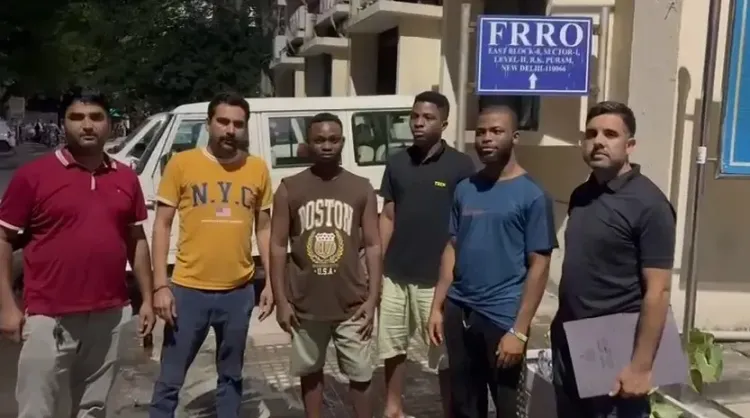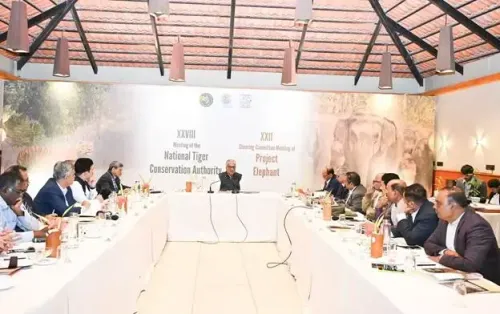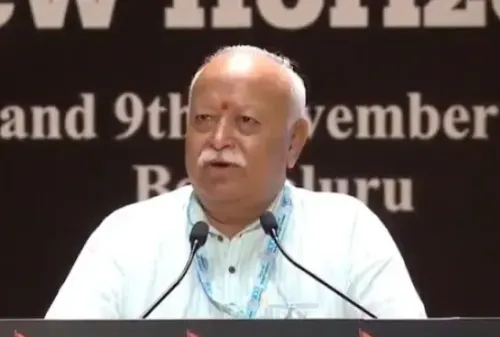Why Were Three Nigerian Nationals Detained in Delhi?

Synopsis
Key Takeaways
- The Delhi Police detained three Nigerian nationals for living illegally in India.
- Deportation proceedings have been initiated through the FRRO.
- Verification revealed that their visas had expired.
- They were engaged in housekeeping jobs in the Gurugram and Noida areas.
- The case highlights ongoing challenges in immigration enforcement.
New Delhi, Sep 20 (NationPress) The Delhi Police has apprehended three Nigerian nationals who were discovered living unlawfully in India, as stated by officials on Saturday. Deportation proceedings have been initiated via the Foreigners Regional Registration Office (FRRO) following the completion of all necessary legal protocols, as per the Operations Cell of the Delhi Police's South West District.
The individuals have been identified as Eloumuno Gabriel, aged 29 from Amambra; Chinedu Paulinus, aged 33 from Asaba; and Sunusi Sani, aged 26 from Lagos.
Police reported that the trio initially claimed to have valid visas stored with the Nigerian embassy. However, a verification process conducted with the High Commission of Nigeria and the Immigration Department uncovered that they had overstayed their visas and had not returned to Nigeria.
Authorities had received intelligence regarding illegal African migrants in the Sagarpur and Palam village areas.
Upon acting on the tip-off, a police team intercepted the suspects and requested identification documents. When they could not provide valid visas, they confessed to living in India unlawfully.
A search of their mobile devices resulted in the recovery of digital copies of their passports and Nigerian national ID cards.
During questioning, the men disclosed that they had been engaged in housekeeping work with some African associates in Shahpura, Gurugram, and Noida.
At the time of their detention, they were residing in Dwarka Sector-01 near Palam village and were actively seeking employment, as confirmed by officials.
The police indicated that the trio will remain in custody until the deportation process is finalized in collaboration with immigration authorities.










